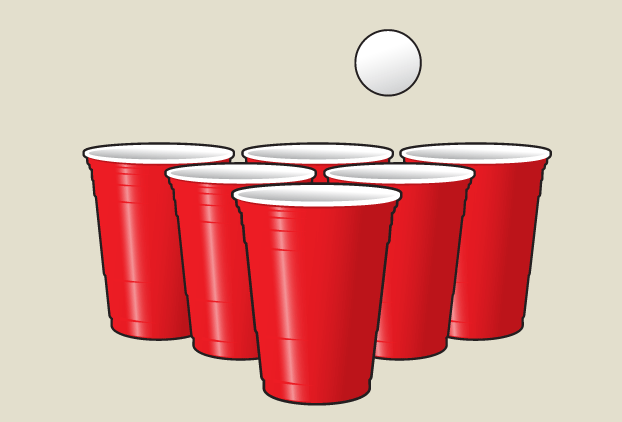April marks an entire month devoted to Alcohol Awareness and, though drinking under the age of 21 is technically illegal, it doesn’t mean alcohol use isn’t happening on college campuses.
In fact, most students try alcohol for the first time in their lives during college. But students, more than anyone, need to be aware of the risks of alcohol use, especially when they may not know their limits or how alcohol can cause them to react.
With that, let’s explore four key facts that you should know about for
Alcohol Awareness Month, which concern college students.
1. About half of college students who drink consume alcohol through binge drinking.
According to the
National Institute on Alcohol Abuse and Alcoholism (NIAAA) states that binge drinking is defined as "drinking that brings blood alcohol concentration (BAC) levels to 0.08 g/dL. This typically occurs after 4 drinks for women and 5 drinks for men—in about 2 hours."
The Substance Abuse and Mental Health Services Administration (SAMHSA), the organization which conducts the annual National Survey on Drug Use and Health (NSDUH), defines binge drinking as "drinking 5 or more alcoholic drinks on the same occasion on at least 1 day in the past 30 days." Binge drinking includes additional risks, with signs leading to blackouts or passing out.
Furthermore, SAMHSA defines heavy drinking "as drinking 5 or more drinks on the same occasion on each of 5 or more days in the past 30 days."
Additionally, the NIAAA reports that about 20 percent of college students meet criteria to classify them having an
Alcohol Use Disorder (AUD).
2. Nearly 1,825 college students die from alcohol-related injuries or circumstances annually.
The
NIAAA (National Institute on Alcohol Abuse and Alcoholism) reports these deaths occur in individuals between the ages of 18 – 24.
An additional 599,000 students within the same age group suffer from alcohol-related injuries each year as well.
3. Students are at higher risk for sexual assault when drinking.
Again, according to the NIAAA, more than 690,000 students between the ages of 18 and 24 are assaulted by another student who has been drinking.
What's more is that "about 97,000 students, ages 18-24, report experiencing alcohol-related sexual assault or date rape."
4. About 1 in 4 college students experience negative academic consequences from drinking.
The NIAAA also reports that about 25 percent of college students who consume alcohol report negative academic consequences of their drinking, including "missing class,falling behind in class, doing poorly on exams or papers, and receiving lower grades overall."
According to the NIAAA, a national survey of college students found that "binge drinkers who consumed alcohol at least 3 times per week were roughly 6 times more likely than those who drank but never binged to perform poorly on a test or project as a result of drinking (40 percent vs. 7 percent) and 5 times more likely to have missed a class (64 percent vs. 12 percent)."
What should you learn from these facts and this information?
Make sure that when you socialize, you stick with your friends. Don’t drink out of a community cooler or from a cup that someone hands you; pour your own drinks. Also, drink plenty of water, and limit your drinks during one sitting so that you’re not binge drinking. Finally, don't drink and drive; and remember, buzzed driving is drunk driving.
It's also important to remember that these facts aren't the only consequences involving alcohol use. Other consequences listed by the NIAAA include "suicide attempts, health problems, injuries, unsafe sex, driving under the influence of alcohol, as well as vandalism, property damage, and involvement with the police."
Essentially, make choices in college that make your best interests and health a priority. Keep these facts in mind and educate others to spread the word about alcohol awareness this month.
